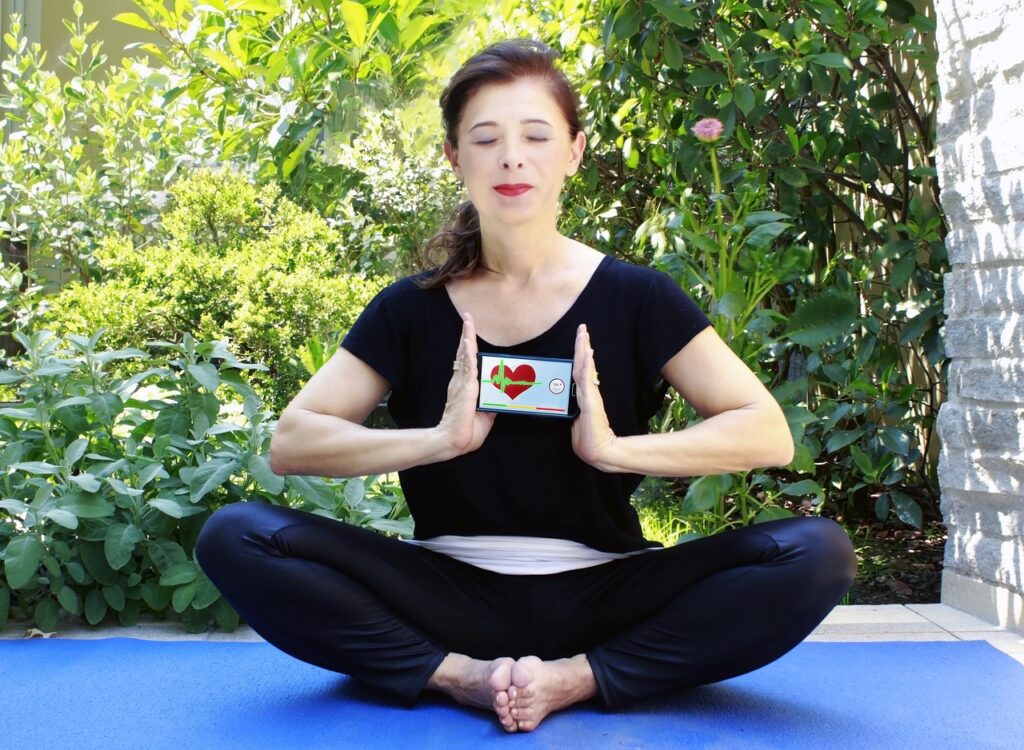Health and Fitness Apps: Revolutionizing Personal Wellness – In today’s fast-paced world, staying fit and healthy is more important than ever. With the rise of technology, managing our health and fitness goals has become easier and more accessible thanks to the plethora of health and fitness apps available on the market. These apps offer a wide range of features and functionalities designed to help users lead healthier lifestyles. Let’s delve deeper into the world of health and fitness apps and explore their benefits, types, popular options, tips for choosing the right one, challenges, future trends, and more.

Benefits of Using Health and Fitness Apps
Convenience
One of the primary benefits of health and fitness apps is the convenience they offer. With just a few taps on your smartphone, you can access personalized workout routines, track your calorie intake, monitor your sleep patterns, and more, all from the comfort of your home or while on the go.
Personalization
Many health and fitness apps allow users to customize their experience based on their individual goals, fitness level, and preferences. Whether you’re looking to lose weight, build muscle, improve flexibility, or simply adopt a healthier lifestyle, there’s an app out there tailored to your needs.
Tracking Progress
Another key advantage of health and fitness apps is their ability to track your progress over time. By logging your workouts, meals, and other health-related activities, you can gain valuable insights into your habits and behaviors, identify areas for improvement, and stay motivated to reach your goals.
Motivation and Accountability
Health and fitness apps often incorporate motivational features such as virtual rewards, challenges, and social sharing capabilities, which can help keep you accountable and motivated on your wellness journey. Whether you’re competing with friends, earning badges for hitting milestones, or receiving encouraging messages from virtual coaches, these incentives can make all the difference in staying on track.
Types of Health and Fitness Apps
Workout Apps
Workout apps provide users with a variety of exercise routines, ranging from cardio and strength training to yoga and Pilates. They typically include instructional videos, timers, progress tracking, and other tools to help you get the most out of your workouts.
Nutrition Apps
Nutrition apps focus on helping users make healthier food choices by providing meal plans, calorie counters, food diary logs, recipe ideas, grocery lists, and nutritional information. Some apps even offer personalized meal recommendations based on dietary preferences and goals.
Meditation and Mental Health Apps
Meditation and mental health apps offer guided meditation sessions, mindfulness exercises, stress-relief techniques, sleep aids, and mood tracking tools to promote emotional well-being and reduce anxiety, depression, and other mental health issues.
Sleep Tracking Apps
Sleep tracking apps monitor your sleep patterns and quality by analyzing factors such as duration, depth, and disturbances. They often offer insights into your sleep habits, suggest ways to improve sleep hygiene, and wake you up gently during your lightest sleep phase for a more restful awakening.
Popular Health and Fitness Apps
MyFitnessPal
MyFitnessPal is a comprehensive nutrition and fitness app that helps users track their food intake, exercise, weight, and progress towards their health goals. It features a large database of foods, barcode scanning capabilities, recipe importer, meal planning tools, and community support.
Nike Training Club
Nike Training Club offers a wide range of workout programs led by professional trainers, with options for all fitness levels and goals. It includes instructional videos, personalized workout recommendations, progress tracking, and integration with Nike’s line of fitness wearables.
Headspace
Headspace is a leading meditation and mindfulness app that offers guided meditation sessions, sleep aids, stress-relief exercises, and mindfulness practices. It’s designed to help users reduce stress, improve focus, and cultivate a sense of peace and well-being in their daily lives.
Sleep Cycle
Sleep Cycle is an intelligent alarm clock and sleep tracker that analyzes your sleep patterns and wakes you up during your lightest sleep phase, ensuring you feel refreshed and energized. It also provides detailed sleep statistics, graphs, and trends to help you understand and optimize your sleep quality.
How to Choose the Right Health and Fitness App
Set Your Goals
Before choosing a health and fitness app, take some time to clarify your goals and priorities. Whether you’re looking to lose weight, gain muscle, improve flexibility, or enhance your overall well-being, knowing what you want to achieve will help you narrow down your options.
Read Reviews and Ratings
Do some research and read reviews and ratings from other users to get an idea of the app’s quality, reliability, and user satisfaction. Look for feedback on features, usability, effectiveness, customer support, and any potential drawbacks or issues.
Consider Features and User Interface
Evaluate the features and functionalities offered by each app, such as workout variety, meal planning tools, progress tracking, community support, and compatibility with wearable devices. Also, pay attention to the app’s user interface and design, as you’ll be interacting with it regularly.
Check Compatibility and Integration
Make sure the app is compatible with your smartphone’s operating system (iOS or Android) and any other devices or platforms you use, such as fitness trackers, smartwatches, or health monitoring devices. Additionally, check if the app integrates with other apps or services you already use for seamless data sharing and synchronization.
Tips for Getting the Most Out of Health and Fitness Apps
Set Realistic Goals
Set achievable and realistic goals that align with your current fitness level, lifestyle, and preferences. Break them down into smaller, manageable steps, and celebrate your progress along the way.
Use App Reminders and Notifications
Take advantage of the app’s reminder and notification features to stay on track with your workouts, meals, hydration, sleep, and other health-related activities. Set daily or weekly reminders to keep you accountable and motivated.
Sync with Wearable Devices
If you own a fitness tracker, smartwatch, or other wearable device, consider syncing it with your health and fitness app for more accurate activity tracking and seamless data integration. This allows you to monitor your progress in real-time and adjust your goals accordingly.
Stay Consistent and Patient
Consistency is key when it comes to achieving your health and fitness goals. Make a commitment to yourself to use the app regularly and stick to your exercise and nutrition plan, even on days when you don’t feel motivated. Remember that progress takes time, so be patient and trust the process.
Challenges and Limitations of Health and Fitness Apps
Data Accuracy
One potential challenge of health and fitness apps is the accuracy and reliability of the data they provide. Factors such as user input errors, sensor limitations, and algorithmic calculations can affect the accuracy of metrics such as calorie counts, step counts, and sleep tracking.
Motivation Dependency
While health and fitness apps can be effective tools for setting goals, tracking progress, and providing motivation, they shouldn’t replace intrinsic motivation and self-discipline. Relying too heavily on external rewards or reminders can lead to dependency and lack of intrinsic motivation in the long run.
Privacy and Security Concerns
With the increasing amount of personal data being collected and shared through health and fitness apps, privacy and security concerns have become a growing issue. Users should be mindful of the app’s privacy policies, data collection practices, and security measures to protect their sensitive information.
Future Trends in Health and Fitness Apps
AI and Machine Learning Integration
The future of health and fitness apps lies in the integration of artificial intelligence (AI) and machine learning algorithms to provide more personalized and predictive experiences. These technologies can analyze user data, identify patterns, and offer tailored recommendations for workouts, nutrition, recovery, and overall wellness.
Virtual Reality Workouts
Virtual reality (VR) workouts are poised to revolutionize the fitness industry by offering immersive and interactive exercise experiences from the comfort of your home. With VR headsets and motion tracking technology, users can engage in virtual environments, interact with virtual trainers, and participate in gamified workouts for a more engaging and enjoyable fitness experience.
Telemedicine and Remote Health Monitoring
Telemedicine and remote health monitoring apps enable users to consult with healthcare providers, track their vital signs, manage chronic conditions, and receive personalized health advice and treatment plans from the convenience of their smartphones. These apps help bridge the gap between patients and providers, particularly in remote or underserved areas.
Conclusion
In conclusion, health and fitness apps have revolutionized the way we approach personal wellness by providing convenient, personalized, and motivational tools for managing our health goals. Whether you’re looking to improve your fitness, nutrition, mental health, or sleep habits, there’s an app out there to support you on your journey. By choosing the right app, setting realistic goals, staying consistent, and embracing future trends, you can take control of your health and live your best life.
Unique FAQs
- Are health and fitness apps suitable for beginners?
- Yes, many health and fitness apps offer beginner-friendly workouts, meal plans, and guidance tailored to users with varying fitness levels and goals.
- Can health and fitness apps help with weight loss?
- Absolutely! Health and fitness apps can assist with weight loss by tracking calories, providing meal plans, offering workout routines, and promoting healthy habits.
- Are health and fitness apps secure?
- While most reputable health and fitness apps prioritize user privacy and security, it’s essential to review their privacy policies, permissions, and data handling practices to ensure your information is protected.
- Do I need to pay for health and fitness apps?
- While many health and fitness apps offer free versions with limited features, some may require a subscription or one-time purchase to access premium content, advanced features, or ad-free experiences.
- Can I use multiple health and fitness apps simultaneously?
- Yes, you can use multiple health and fitness apps simultaneously to track different aspects of your wellness, such as nutrition, workouts, meditation, and sleep. Just ensure they complement each other and don’t overwhelm you with redundant information.




